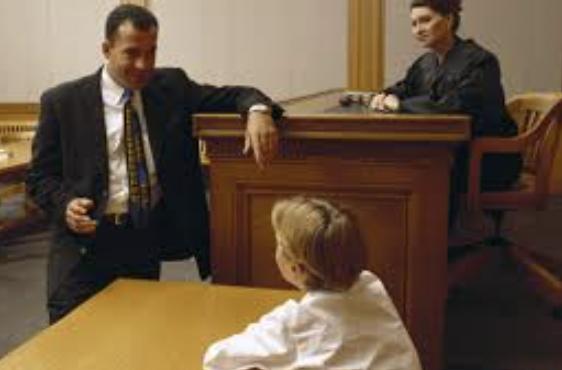How to ask a child questions in court is not something that I found lawyers knew much about. I was never trained about it in law school or through continuing legal education as a practicing lawyer.
There have been books and articles written on the subject that take into consideration many things, including whether children should be called as a witness at all, due to the psychological damage that being a witness might cause. When a child is the victim of a crime, many states allow the child to testify out of the presence of the accused while allowing the accused to watch the testimony from another room or cell outside of the courtroom.
Even what a child understands when he or she takes the oath to “tell the truth” might not be known unless he or she is old enough. As a judge, with a child witness depending on his/her age, I would ask a series of simple questions to be sure that they understood what telling the truth was and that they knew how important it was for them to tell the truth.
Just letting them into the courtroom prior to the court day to see what it looks like helps. That allows them to become comfortable with where they will sit and where the other people in the courtroom will be located. We often opened our courtrooms to allow for that kind of an inspection by a young witness. They were allowed to sit in the judge’s chair as well to help with their level of comfort.
Some lawyers consider children as “little adults”, which they are not. While lawyers are trained to never ask a question for which they do not know what the answer will be, children often can surprise the questioner and the court simply because of how the question is asked.
Two of the most important things that must be taken into consideration are the age and maturity of the child. For instance, is the child old enough to understand what time means? I recall being told by a professional who was knowledgeable in child development that a child needs to be at least 10 years of age to have a good understanding of time. Do you recall driving somewhere and having your child ask multiple times how long it would be before you would arrive at where you were going? Depending on their age at the time, asking someone “Do you remember what you were doing at 6:00 p.m. on the day in question, may get you an answer that might be meaningless or incorrect because the child is not old enough to understand time.
How complex the question is can also have a bearing on what the child’s answer might be. While an adult might be able to discern that part of the question is not relevant to what answer is being sought, a child might not be. As a result the answer may be correct and logical from a child’s point of view but mean the direct opposite of what the questioner was hoping would be the response.
Judges dealing in cases where children will be testifying or talking with them outside of the courtroom often receive training in this area of child development. That can provide them with a better understanding of both the question that is ask and what the child probably means by his or her answer.
Preparing the child both with the anticipated questions and what the courtroom is like is particularly important. Also important for a lawyer is being sure that they do not appear to be a bully by how they question the child. Too often in custody cases, I saw lawyers representing a parent push too hard to ask questions of the children that the children did not want to answer because they loved both parents.
The fact that the question was asked may not endear the lawyer who asked it or his or her client to the judge who is being asked to make the decision. It can tell the judge something about the parent and/or the lawyer that may be the one piece of information that can cause a decision to be made one way or another.
Thanks for reading. Please be in touch.
Judge Rideout is the former Chief Judge of the Alexandria, VA Juvenile and Domestic Relations District Court (1989-2004). From 2004 until the present he has consulted in different states to support their efforts to improve their child welfare systems. From 2016 to early 2021, he was the Ward 1 Commissioner on the Cambridge City Council. Throughout his career, he has been an advocate for improving the lives of children in his and other communities. Steve can be reached at [email protected].



Write a Letter to the Editor on this Article
We encourage readers to offer their point of view on this article by submitting the following form. Editing is sometimes necessary and is done at the discretion of the editorial staff.